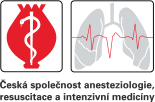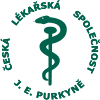Anest. intenziv. Med. 2007;18(5):296-300
Do beta-blockers still have their role in myocardial protection?Anaesthesiology - Review articles
- Klinika anesteziologie a resuscitace, FN v Motole a IPVZ, Praha
Cardiovascular complications after non-cardiac surgery occur in one out of ten patients. All possible risk-reducing approaches including perioperative beta-blockade are warranted. Beta-blocker administration is based on the results of randomized controlled studies performed by Mangano et al. and Poldermans et al. However, new findings cast doubt on routine beta-blocker use. Current recommendations for perioperative beta-blockade for non-cardiac surgery are presented in this review.
Keywords: non-cardiac surgery; perioperative period; beta-blockade
Published: October 1, 2007 Show citation
References
- Khuri, S. F. et al. The Department of Veterans Affairs' NSQIP: The first national, validated, outcome-based, risk-adjusted, and peer-controlled program for the measurement and enhancement of the quality of surgical care. National VA Surgical Quality Improvement Program. Ann. Surg., 1998, 228, 4, p. 491-507.
 Go to original source...
Go to original source...  Go to PubMed...
Go to PubMed... - Safe Practices for Better Healthcare: A Consensus Report. Summary. The National Quality Forum. August 2003. Agency for Healthcare Research and Quality, Rockville, MD. http://www.ahrq.gov/qual/nqfpract.htm (poslední přístup 17.8.2007).
- Mangano, D. T. et al. Effect of atenolol on mortality and cardiovascular morbidity after noncardiac surgery. Multicenter Study of Perioperative Ischemia Research Group. N. Engl. J. Med., 1996, 335, 23, p. 1713-1720.
 Go to original source...
Go to original source...  Go to PubMed...
Go to PubMed... - Poldermans, D. et al. The effect of bisoprolol on perioperative mortality and myocardial infarction in high-risk patients undergoing vascular surgery. Dutch Echocardiographic Cardiac Risk Evaluation Applying Stress Echocardiography Study Group. N. Engl. J. Med., 1999, 341, 24, p. 1789-1794.
 Go to original source...
Go to original source...  Go to PubMed...
Go to PubMed... - Lindenauer, K. et al. Perioperative beta-blocker therapy and mortality after major noncardiac surgery. N. Engl. J. Med., 2005, 353, 4, p. 349-361.
 Go to original source...
Go to original source...  Go to PubMed...
Go to PubMed... - Biccard, B. M. et al. Acute peri-operative beta blockade in intermediate-risk patients. Anaesthesia, 2006, 61, 10, p. 924-931.
 Go to original source...
Go to original source...  Go to PubMed...
Go to PubMed... - Wiysonge, C. S. et al. Beta-blockers for hypertension. Cochrane Database Syst. Rev., 2007 Jan 24, 1, CD002003.
 Go to original source...
Go to original source...  Go to PubMed...
Go to PubMed... - Williams, B. et al. Differential impact of blood pressure-lowering drugs on central aortic pressure and clinical outcomes: principal results of the Conduit Artery Function Evaluation (CAFE) study. Circulation, 2006, 113, 9, p. 1213-1225.
 Go to original source...
Go to original source... - Freemantle, N. et al. Beta-blockade after myocardial infarction: systematic review and metaregression analysis. BMJ, 1999, 318, 7200, p. 1730-1737.
 Go to original source...
Go to original source...  Go to PubMed...
Go to PubMed... - Lechat, P. et al. Clinical effects of β-adrenergic blockade in chronic heart failure: a meta-analysis of randomised clinical trials. Circulation, 1998, 98, 12, p. 1184-1191.
 Go to original source...
Go to original source...  Go to PubMed...
Go to PubMed... - Adesanya, A. O. et al. Management of perioperative myocardial infarction in noncardiac surgical patients. Chest, 2006, 130, 2, p. 584-596.
 Go to original source...
Go to original source...  Go to PubMed...
Go to PubMed... - Eagle, K. A. et al. ACC/AHA Guideline Update for Perioperative Cardiovascular Evaluation for Noncardiac Surgery - Executive Summary. A report of the American College of Cardiology/American Heart Association Task Force on Practice Guidelines (Committee to Update the 1996 Guidelines on Perioperative Cardiovascular Evaluation for Non-cardiac Surgery). Anesth. Analg., 2002, 94, 5, p. 1052-1064.
 Go to PubMed...
Go to PubMed... - Fleisher, L. A. et al. ACC/AHA 2006 guideline update on perioperative cardiovascular evaluation for noncardiac surgery: focused update on perioperative ß-blocker therapy. A report of the American College of Cardiology/American Heart Association Task Force on Practice Guidelines (Writing Committee to Update the 2002 Guidelines on Perioperative Cardiovascular Evaluation for Noncardiac Surgery). Anesth. Analg., 2007, 104, 1, p. 15-26.
 Go to original source...
Go to original source...  Go to PubMed...
Go to PubMed... - Yang, H. et al. The effects of perioperative ß-blockade: Results of the Metoprolol After Vascular Surgery (MAVS) study, a randomized controlled trial. Am. Heart J., 2006, 152, 5, p. 983-990.
 Go to original source...
Go to original source...  Go to PubMed...
Go to PubMed... - Juul, A. B. et al. Effect of perioperative beta-blockade in patients with diabetes undergoing major non-cardiac surgery: randomised placebo controlled, blinded multicentre trial. Brit. Med. J., 2006, 332, 7556, p. 1482-1488.
 Go to original source...
Go to original source...  Go to PubMed...
Go to PubMed... - Brady, A. R. et al. Perioperative beta-blockade (POBBLE) for patients undergoing infrarenal vascular surgery: results of a randomized double-blinded controlled trial. J. Vasc. Surg., 2005, 41, 4, p. 602-609.
 Go to original source...
Go to original source...  Go to PubMed...
Go to PubMed... - Auerbach, A. D., Goldman, L. Beta-blockers and reduction of cardiac events in noncardiac surgery: scientific review. JAMA, 2002, 287, 11, p. 1435-1444.
 Go to original source...
Go to original source...  Go to PubMed...
Go to PubMed... - Auerbach, A. D., Goldman, L. Beta-blockers and reduction of cardiac events in noncardiac surgery: clinical applications. JAMA, 2002, 287, 11, p. 1445-1447.
 Go to original source...
Go to original source...  Go to PubMed...
Go to PubMed... - Stevens, R. D. et al. Pharmacologic myocardial protection in patients undergoing noncardiac surgery: a quantitative systematic review. Anesth. Analg., 2003, 97, 3, p. 623-633.
 Go to original source...
Go to original source...  Go to PubMed...
Go to PubMed... - McGory, M. L. et al. A meta-analysis of perioperative beta blockade: what is the actual risk reduction? Surgery, 2005, 138, 2, p. 171-179.
 Go to original source...
Go to original source...  Go to PubMed...
Go to PubMed... - Schouten, O. et al. A meta-analysis of safety and effectiveness of perioperative beta-blocker use for the prevention of cardiac events in different types of noncardiac surgery. Coron. Artery Dis., 2006, 17, 2, p. 173-179.
 Go to original source...
Go to original source...  Go to PubMed...
Go to PubMed... - Devereaux, P. J. et al. How strong is the evidence for the use of perioperative beta blockers in non-cardiac surgery? Systematic review and meta-analysis of randomised controlled trials. Brit. Med. J., 2005, 331, 7512, p. 313-321.
 Go to original source...
Go to original source...  Go to PubMed...
Go to PubMed... - Bultas, J. Farmakogenetika, účinek léku a lékové interakce. Remedia, 2005, 15, 2, s.115-119.
 Go to original source...
Go to original source... - Raby, K. E. et al. The effect of heart rate control on myocardial ischemia among high-risk patients after vascular surgery. Anesth. Analg., 1999, 88, 3, p. 477-482.
 Go to original source...
Go to original source...  Go to PubMed...
Go to PubMed... - Poldermans, D. et al. Should major vascular surgery be delayed because of preoperative cardiac testing in intermediate-risk patients receiving beta-blocker therapy with tight heart rate control? J. Am. Coll. Cardiol., 2006, 48, 5, p. 964-969.
 Go to original source...
Go to original source...  Go to PubMed...
Go to PubMed... - Feringa, H. H. et al. High-dose beta-blockers and tight heart rate control reduce myocardial ischemia and troponin T release in vascular surgery patients. Circulation, 2006, 114, Suppl. 1, p. 1344-1349.
 Go to original source...
Go to original source...  Go to PubMed...
Go to PubMed... - Zaugg, M. et al. Adrenergic receptor genotype but not perioperative bisoprolol therapy may determine cardiovascular outcome in at-risk patients undergoing surgery with spinal block. The Swiss beta-blocker in spinal anesthesia (BBSA) study: A double-blinded placebo-controlled, multicenter trial with 1-year follow up. Anesthesiology, 2007, 107, 1, p. 33-44.
 Go to original source...
Go to original source...  Go to PubMed...
Go to PubMed... - Giles, J. W. et al. Effect of chronic beta-blockade on peri-operative outcome in patients undergoing non-cardiac surgery: an analysis of observational and case control studies. Anaesthesia, 2004, 59, 6, p. 574-583.
 Go to original source...
Go to original source...  Go to PubMed...
Go to PubMed... - London, M. J. et al. Perioperative beta-adrenergic receptor blockade: physiologic foundations and clinical controversies. Anesthesiology, 2004, 100, 1, p. 170-175.
 Go to original source...
Go to original source...  Go to PubMed...
Go to PubMed... - Fleisher, L. A. Perioperative ß-blockade: How best to translate evidence into practice. Anaesth. Analg., 2007, 104, 1, p. 1-3.
 Go to original source...
Go to original source...  Go to PubMed...
Go to PubMed... - Bolsin, S. et al. ß-blockers and statins in non-cardiac surgery. Brit. J. Med., 2007, 334, 7607, p. 1283-1284.
 Go to original source...
Go to original source...  Go to PubMed...
Go to PubMed... - Redelmeier, D. et al. Beta-blockers for elective surgery in elderly patients: population based, retrospective cohort study. Brit. J. Med., 2005, 331, 7522, p. 932.
 Go to original source...
Go to original source...  Go to PubMed...
Go to PubMed... - Hackam, D. G. Perioperative ß-blocker therapy in vascular surgery: Clinical update. J. Vasc. Surg., 2006, 43, 3, p. 632-634.
 Go to original source...
Go to original source...  Go to PubMed...
Go to PubMed...





